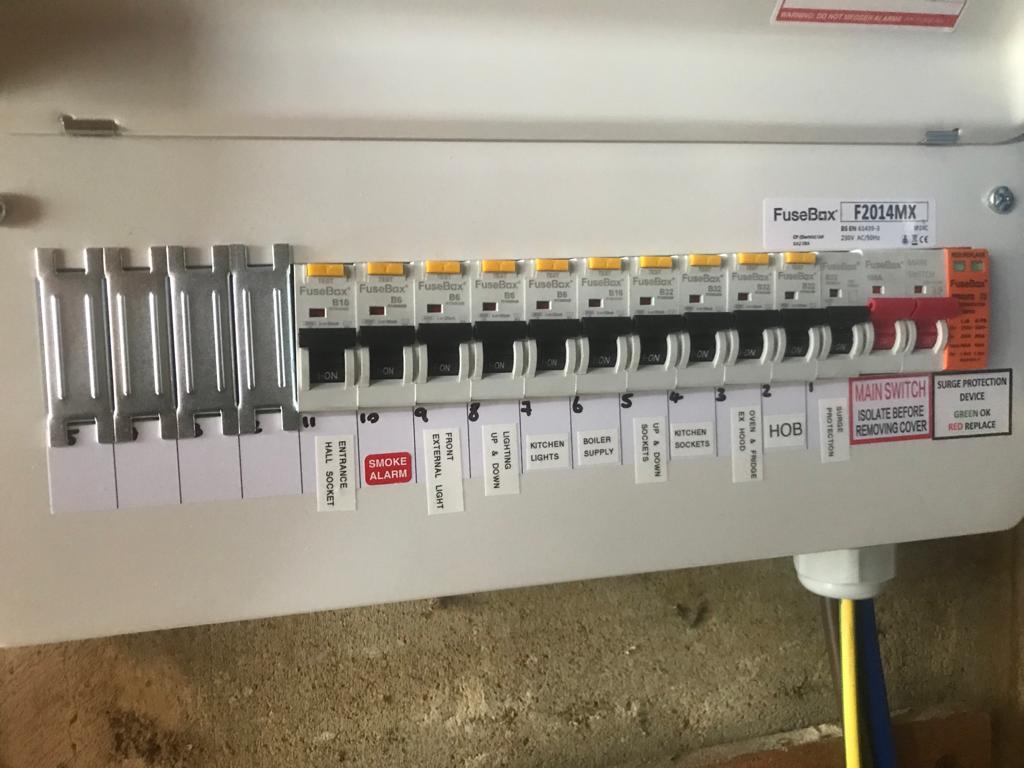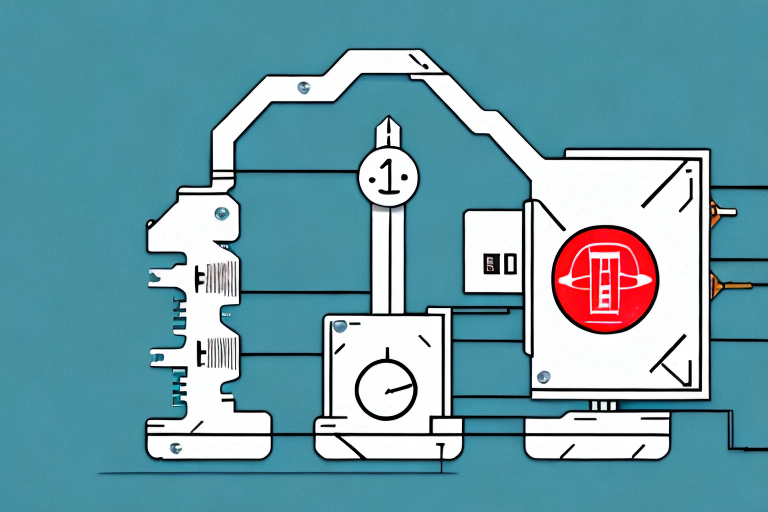In the world of electrical systems, two common devices play a crucial role in safeguarding our homes and businesses – circuit breakers and fuses. Understanding the differences between these two essential components is key to making informed decisions about electrical safety. In this article, we will delve into the functionality, advantages, and disadvantages of circuit breakers and fuses, as well as explore their key differences.
Understanding Circuit Breakers
Before we discuss the pros and cons of switch circuit breaker, let’s first understand their fundamental functionality. Circuit breakers are electrical switches designed to protect electrical circuits from overloads and short circuits. They act as automated safety devices that instantly interrupt the flow of electricity when the current exceeds a certain limit.
The Functionality of Circuit Breakers
When a circuit breaker detects an excess flow of electrical current, it trips, or opens, its internal switch, breaking the circuit and stopping the flow of electricity. This action helps prevent damage to electrical equipment, such as appliances and wiring, and minimizes the risk of electrical fires.
But how exactly does a circuit breaker detect an excess flow of electrical current? Inside the circuit breaker, there is a bimetallic strip that bends when exposed to excessive heat caused by the increased current. This bending of the strip triggers the internal switch, opening the circuit and cutting off the electricity. Learn more latest technological advances in electrical supplies.
Once the circuit breaker trips, it needs to be manually reset to restore power to the circuit. This reset can be done by flipping the switch back to its original position. However, it is crucial to identify and address the cause of the excess current before resetting the breaker to prevent it from tripping again.

Advantages of Using Circuit Breakers
Circuit breakers offer several advantages over fuses. Firstly, they are reusable and do not require replacement after tripping. This feature translates to cost savings over time. With fuses, on the other hand, you would need to replace them every time they blow, which can add up in terms of both time and money.
Secondly, circuit breakers provide easy and quick restoration of power. Once the cause of the overload or short circuit is resolved, the breaker can be reset, restoring electricity to the circuit. This convenience can be especially beneficial in situations where downtime needs to be minimized, such as in a commercial or industrial setting.
Additionally, circuit breakers offer enhanced safety as they can be manually turned off during maintenance or in emergencies. This ability to manually control the flow of electricity provides an added layer of protection, allowing individuals to isolate specific circuits without having to shut down the entire electrical system.
Disadvantages of Using Circuit Breakers
While circuit breakers have their advantages, they also come with a few drawbacks. One of the main disadvantages is their initial cost, which tends to be higher than that of fuses. This higher cost is due to the more complex technology and construction of circuit breakers.
Furthermore, circuit breakers can be complex devices, requiring professional installation and occasional maintenance. Unlike fuses, which are relatively simple to replace, circuit breakers may need to be installed by a licensed electrician to ensure proper functioning and compliance with electrical codes and regulations.
In some cases, the complexity and inaccessibility of the breakers may make troubleshooting more challenging. When a circuit breaker trips, it can be difficult to identify the exact cause of the overload or short circuit. This can lead to longer troubleshooting times and potentially higher repair costs.
Despite these disadvantages, circuit breakers remain the preferred choice for electrical protection in most residential, commercial, and industrial applications. Their ability to quickly interrupt the flow of electricity and their reusable nature make them a reliable and cost-effective solution for safeguarding electrical circuits.
Exploring Fuses
Now that we have explored circuit breakers, let’s shift our focus to fuses and their role in electrical systems. Fuses are devices that protect electrical circuits by melting when excessive current flows through them. The melted fuse effectively breaks the circuit, preventing further electrical flow and safeguarding the system.
But how exactly do fuses work? When an electrical current surpasses the recommended level, the fuse’s wire or filament heats up and melts, causing an open circuit. This action interrupts the flow of electricity, protecting equipment and preventing electrical hazards.
Now, let’s dive deeper into the role of fuses in electrical systems. Fuses play a crucial role in protecting electrical circuits from overcurrent situations. They act as the first line of defense, detecting and responding to excessive current flow. By breaking the circuit, fuses prevent damage to sensitive components and ensure the safety of the entire electrical system.

The Role of Fuses in Electrical Systems
When it comes to electrical safety, fuses are indispensable. They serve as sacrificial elements, sacrificing themselves to protect the system from potential dangers. By melting and breaking the circuit, fuses prevent overheating, fires, and other hazardous situations that could arise from excessive current flow.
Furthermore, fuses are designed to respond quickly to overcurrent conditions. Their fast-acting nature ensures that the circuit is interrupted promptly, minimizing the risk of damage to equipment and reducing the potential for electrical accidents.
Benefits of Using Fuses
One of the primary advantages of fuses is their simplicity. Fuses consist of a single component and are easy to install. They do not require complex wiring or additional components, making them a straightforward solution for circuit protection.
Moreover, fuses can handle large electrical surges better than some circuit breakers. This characteristic makes them suitable for protecting sensitive devices, such as electronic equipment or appliances with delicate components. By promptly breaking the circuit, fuses prevent excessive current from reaching these devices, ensuring their longevity and reliability.
Additionally, fuses are readily available in various sizes and ratings, making them easily accessible for different applications. They are often more affordable than circuit breakers, which can be advantageous for budget-conscious projects or applications where cost-effectiveness is a priority.
Drawbacks of Using Fuses
While fuses have their benefits, they also have certain drawbacks that should be considered. One of the main drawbacks is the need for manual replacement. Once a fuse melts and breaks the circuit, it needs to be replaced with a new one. Unlike circuit breakers, which can be reset with a simple switch, fuses are not reusable. Each replacement incurs additional costs and requires the attention of a qualified individual.
Furthermore, replacing a fuse requires careful attention to the fuse rating. Using an incorrect rating can compromise the protection of the electrical system. It is essential to select a fuse with the appropriate current rating to ensure optimal performance and safety.
In situations where quick restoration of power is essential, the need to replace a fuse may cause delays. Unlike circuit breakers that can be reset immediately, replacing a fuse involves locating a replacement, installing it correctly, and ensuring its compatibility with the system. These additional steps can prolong the downtime and inconvenience associated with a power outage.
Despite these drawbacks, fuses remain a popular choice for circuit protection in various applications. Their simplicity, affordability, and ability to handle large electrical surges make them a reliable option for many electrical systems.
Key Differences Between Circuit Breakers and Fuses
Now that we have explored the functionality, advantages, and disadvantages of both circuit breakers and fuses, let’s examine the key differences between them.
When it comes to operational differences, circuit breakers and fuses have distinct mechanisms. Circuit breakers are automated devices that trip when they detect excessive current. This automated feature allows for a quick response time, as the circuit breaker can instantly shut off the flow of electricity when necessary. On the other hand, fuses rely on the melting of a metal filament to break the circuit. This process takes a slightly longer time compared to circuit breakers, as the fuse needs to heat up enough to melt the filament and interrupt the current flow.
In terms of safety, circuit breakers offer enhanced protection due to their ability to be manually turned off during emergencies or maintenance. This manual control allows individuals to quickly and easily cut off the power supply when needed, reducing the risk of electrical accidents or fires. In contrast, fuses require manual replacement once they melt. This replacement process can be potentially dangerous if not executed properly, as it involves handling live electrical components. Therefore, the safety aspect of circuit breakers is considered superior to that of fuses.
When considering cost differences, it is important to look at both the initial investment and long-term expenses. Circuit breakers often have a higher initial cost compared to fuses. However, their reusability makes them more cost-effective in the long run. Once a circuit breaker trips, it can be easily reset by simply flipping a switch. This eliminates the need for constant replacement and reduces the overall maintenance costs. On the other hand, fuses are cheaper initially but require replacement with each circuit interruption. This ongoing replacement cost can add up over time, making fuses less economical in the long term.

Choosing Between Circuit Breakers and Fuses
When it comes to deciding between circuit breakers and fuses for your specific electrical needs, several factors should be considered.
Electrical systems are an integral part of our daily lives, powering everything from our homes to our workplaces. Ensuring the safety and reliability of these systems is of utmost importance. That’s why choosing the right protection devices, such as circuit breakers or fuses, is crucial.
Factors to Consider
The electrical load, the level of safety required, the ease of maintenance, and the cost sensitivity are crucial factors in determining whether circuit breakers or fuses are the more suitable choice for a particular application.
Firstly, let’s consider the electrical load. Circuit breakers are known for their ability to handle higher currents and are better suited for applications with heavy electrical loads. On the other hand, fuses are typically designed for lower current applications and may not be as effective in handling high electrical loads.
Safety is another important factor to consider. Circuit breakers offer enhanced safety features such as overload protection, short circuit protection, and ground fault protection. These features help prevent electrical accidents and minimize the risk of fire. Fuses, although effective in protecting against overcurrent, may not provide the same level of comprehensive protection as circuit breakers.
Maintenance is also a key consideration. Circuit breakers are designed to be resettable, making them more convenient and cost-effective in the long run. In contrast, fuses need to be replaced every time they blow, which can be time-consuming and may require additional expenses.
Lastly, cost sensitivity plays a significant role in decision-making. Circuit breakers tend to have a higher upfront cost compared to fuses. However, considering their resettable nature and longer lifespan, they may prove to be a more cost-effective option in the long term.
Recommendations for Different Scenarios
In residential settings, where convenience and ease of use are significant considerations, circuit breakers are often the preferred choice. The ability to quickly reset a tripped circuit breaker without the need for replacement makes them ideal for homes where downtime and inconvenience should be minimized.
However, in specific industrial or commercial applications, where cost or accessibility is a concern, fuses may be a more practical option. Fuses are generally less expensive and can be easily replaced when needed. This makes them suitable for environments where frequent maintenance or replacement is expected.
Ultimately, the decision between circuit breakers and fuses depends on various factors specific to your electrical system. Consulting with a qualified electrician can help you make an informed decision that meets your safety and cost requirements.
In conclusion, circuit breakers and fuses play vital roles in electrical systems. Understanding their functionality, advantages, disadvantages, and key differences is essential for making informed decisions regarding electrical safety. Whether you opt for circuit breakers or fuses, prioritizing safety and engaging the appropriate experts will ensure the reliability and protection of your electrical infrastructure.